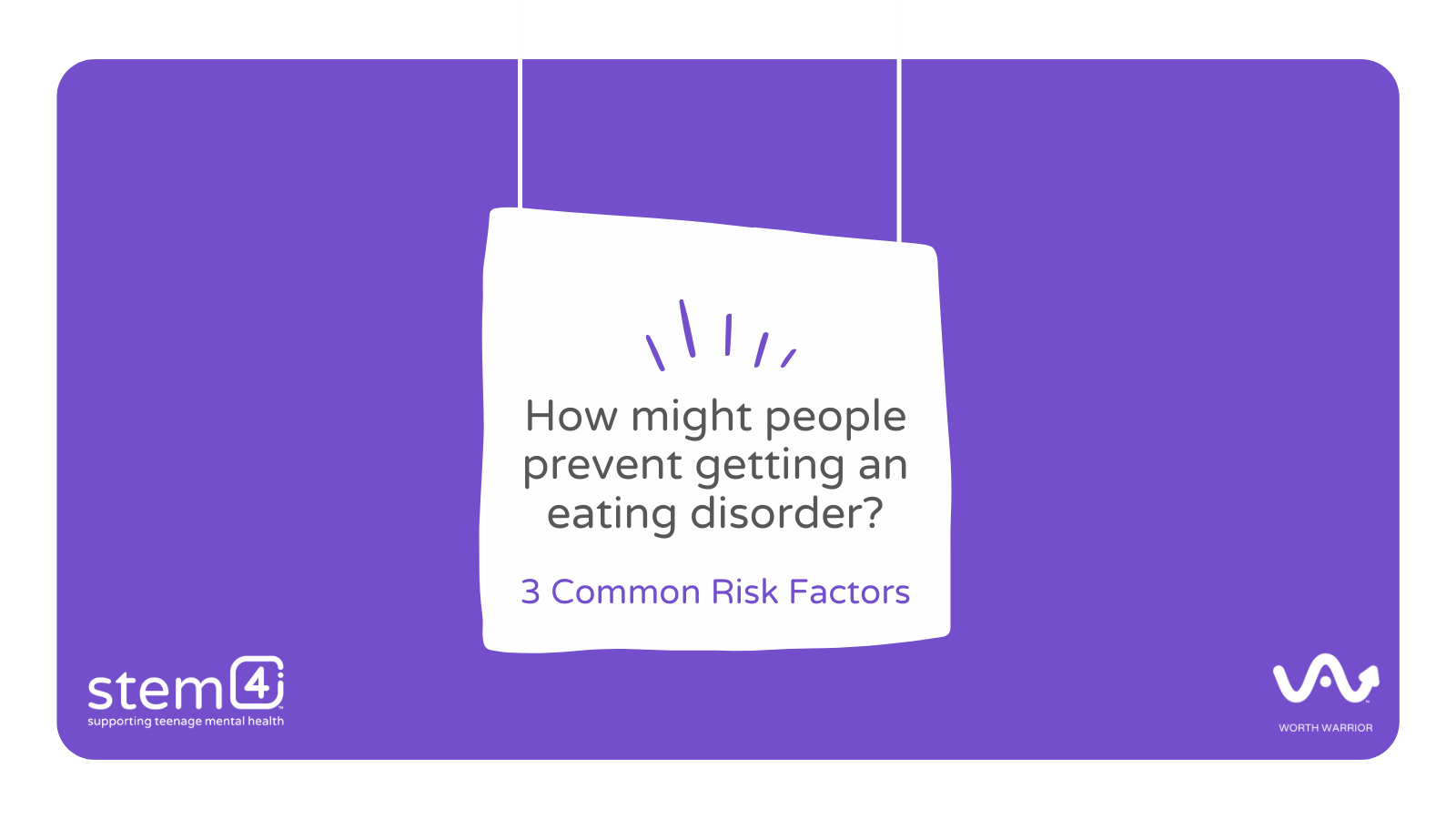
Eating disorders are serious mental ill health conditions and respond well to early diagnosis and intervention.
But how might people prevent getting an eating disorder? Here are some common risk factors which, commonly trigger the start of an eating disorder in some vulnerable people.
1. Dieting
Believe it or not, dieting is the most significant risk factor for the development of an eating disorder. This is because dieting leads to deprivation which leads to a variety of physical changes such as slowed metabolism and increased hunger and psychological changes such as low mood and preoccupation with food. These changes lead to diets being broken, and a pattern called ‘weight cycling’ where weight is lost and gained.
2. Low self-esteem
People with low self-esteem are unhappy and dissatisfied with themselves. This leads to self-criticism, unhappiness, relationship challenges, withdrawal, and perfectionism. These negative factors can lead to a person wanting to change their weight to feel better, but because underlying low self-esteem, losing weight doesn’t change their unhappiness and dissatisfaction of themselves.
3. Difficulty expressing emotions.
It’s easy to be confused as to how a difficulty in expressing emotions could trigger an eating disorder. Emotions are the way we experience, interact, communicate, remember, protect ourselves and recover. When emotions aren’t expressed, they can convert into physical symptoms, add up to create big emotions and even affect a person’s health, for example, their immunity. Eating disorders can either suppress or express emotions in an unhealthy way.




